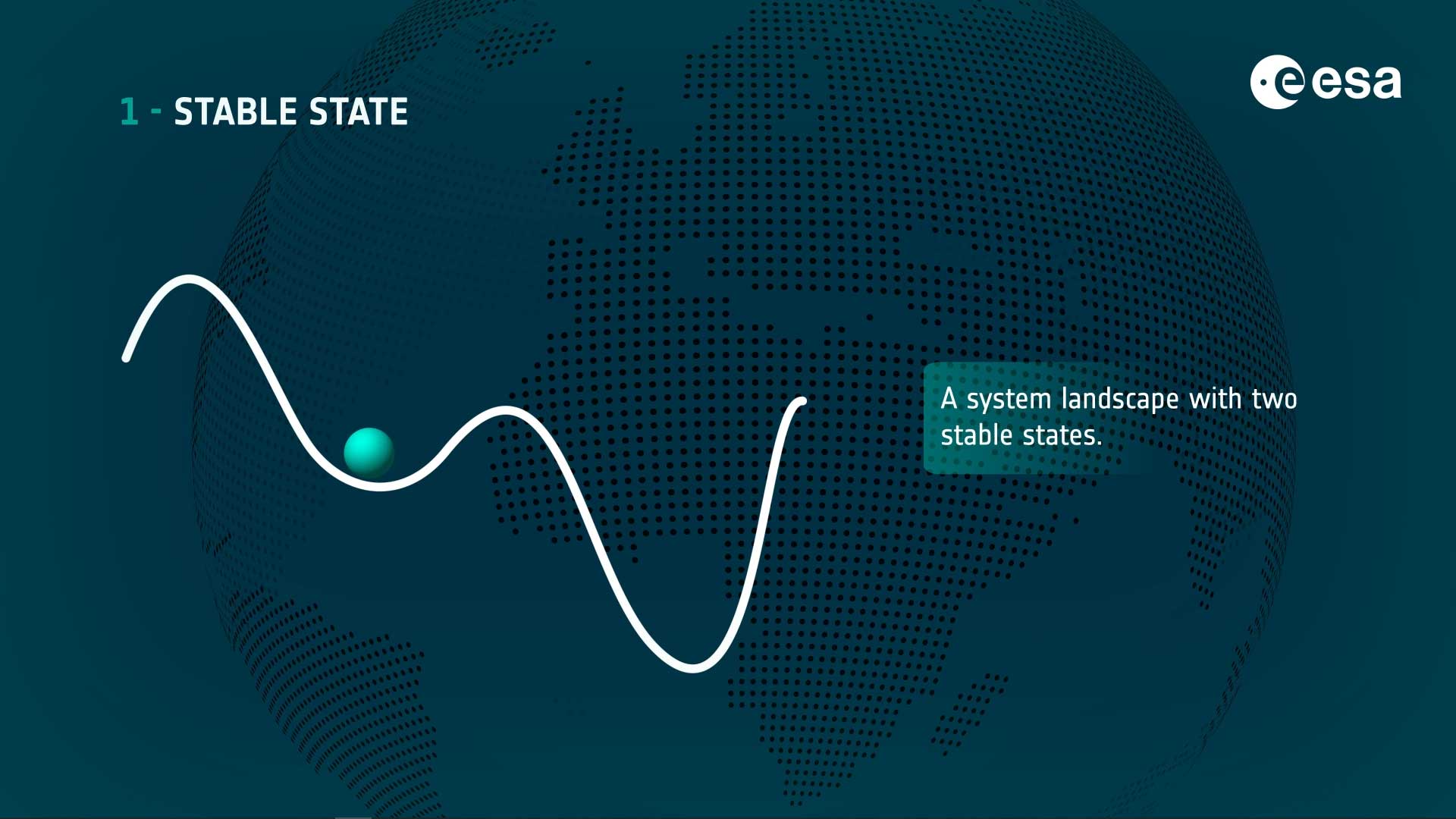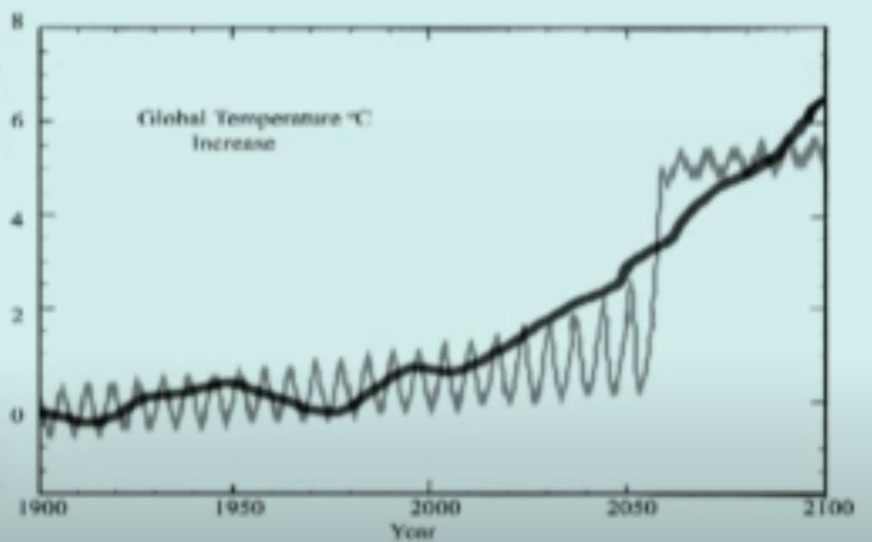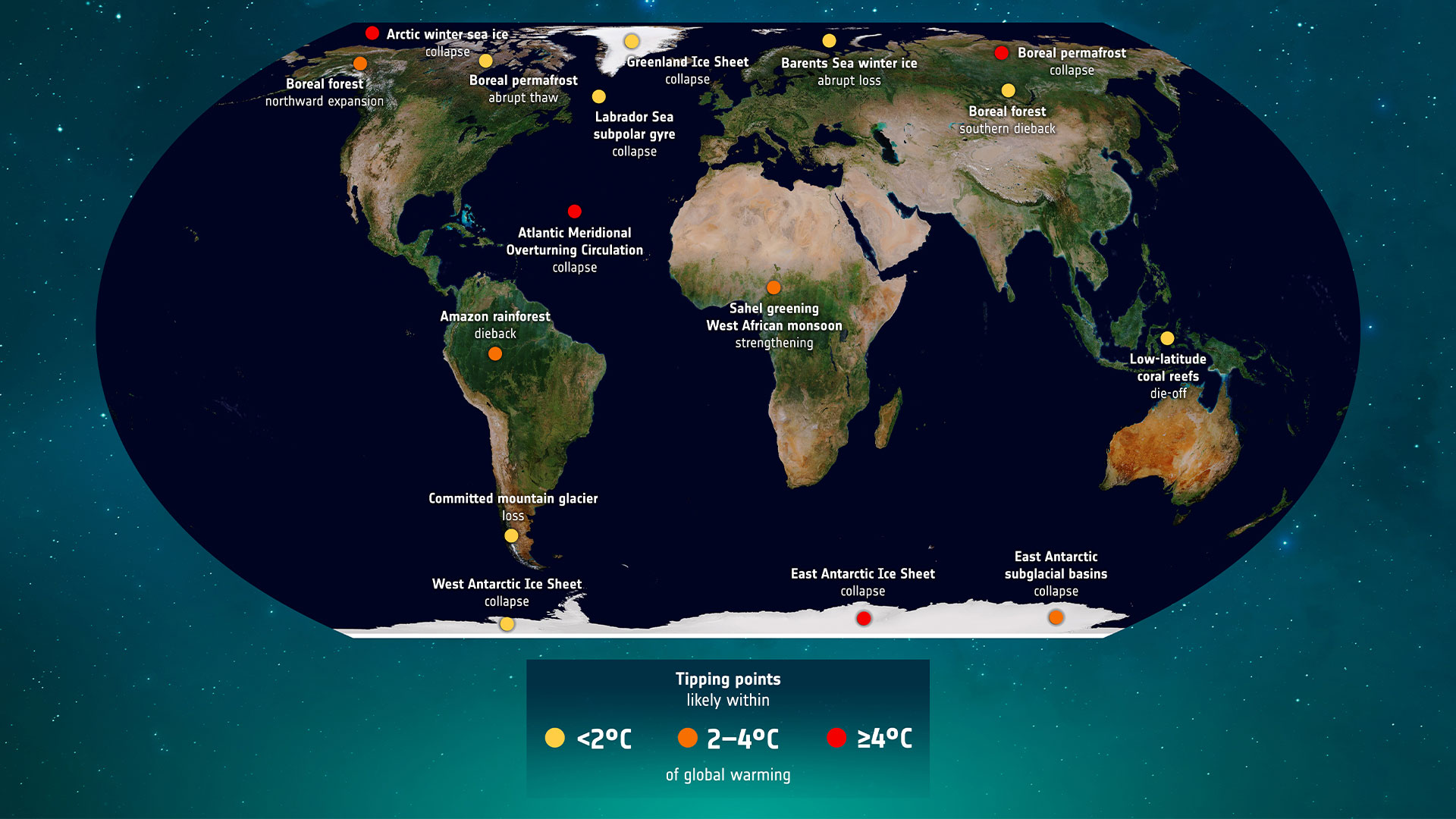Report: Climate Tipping Points may change the Climate State
They occur in various interconnected systems, such as ice, ecosystems, oceans, and the atmosphere.
While it is commonly believed that these systems respond linearly to human pressures, some can abruptly shift to alternative states once a tipping point is crossed. Understanding and managing these tipping points is crucial for the resilience and stability of our planet.
The Global Tipping Points Report
The findings of a new report on tipping points, that we are already at risk of triggering five global tipping points due to climate change is deeply concerning. The potential catastrophic effects and the difficulty of reversing them emphasize the urgent need for immediate and substantial action to mitigate further warming.
It is clear that surpassing 1.5°C of warming would significantly increase the likelihood of crossing tipping points, and there will be a growing risk of this resulting in others as well.
NewScientist: “Triggering one tipping point could trigger another in a kind of dangerous domino effect,” says Tim Lenton at the University of Exeter in the UK, the report’s lead author. “But also these tipping points in the Earth system could, in turn, trigger damaging tipping points in societies, things like food security crises, mass displacement and conflicts. Stopping these threats is possible, but it’s going to require urgent global action.”
What are climate tipping points?
According to the Intergovernmental Panel on Climate Change (IPCC), tipping points are ‘critical thresholds in a system that, when exceeded, can lead to a significant change in the state of the system, often with an understanding that the change is irreversible.’
As the planet warms, many parts of the Earth system are undergoing large-scale changes. These changes are due to the increasing temperatures caused by human activities such as the burning of fossil fuels.

These changes have significant implications for ecosystems, as they disrupt the delicate balance of various natural processes. The shrinking ice sheets contribute to the rise in sea levels, potentially leading to coastal flooding and the displacement of large parts of the human civilization.
The death of coral reefs, which are highly sensitive to temperature changes, has a devastating impact on marine biodiversity. It is crucial to address these issues and reduce greenhouse gas emissions to mitigate further damage to the Earth’s systems and protect the planet for future generations.
The early tipping point model

James Lovelock, The Vanishing Face of Gaia (Corporate Knights, 2009).
In 2009 James Lovelock explained how the climate system would transition between stable climate states (temperature regimes), according to his 1994 Daisyworld model. He highlighted a global temperature graph based on that model with abrupt transition, instead of a linear trend.
Evidence for Earth system tipping dynamics
Monitoring and early warning signals are indicating that certain systems are becoming destabilized, potentially leading to tipping points.
These tipping points, when reached, could trigger a chain reaction of destabilization in other parts of the climate system.
However, it is important to note that not all interactions between these tipping points lead to destabilization. Nonetheless, the potential for tipping cascades highlights the urgent need for action to prevent further climate destabilization.
- Ice sheets
- Amazon rainforest
- Ocean circulation
This evidence indicates that tipping points are a real phenomenon and have occurred in the Earth’s history. It suggests that current systems may also be vulnerable to tipping if certain thresholds are exceeded, emphasizing the need for proactive measures to mitigate against further tipping and its potentially irreversible consequences.

References
- ESA image via Understanding climate tipping points https://www.esa.int/Applications/Observing_the_Earth/Space_for_our_climate/Understanding_climate_tipping_points
- Impacts of 1.5ºC global warming on natural and human systems (IPCC) https://www.ipcc.ch/sr15/chapter/chapter-3/
Related
- Gulf Stream could collapse as early as 2025, study suggests https://www.theguardian.com/environment/2023/jul/25/gulf-stream-could-collapse-as-early-as-2025-study-suggests
- Could climate tipping points lead to collapse of human civilisation? https://www.newscientist.com/article/2224861-could-climate-tipping-points-lead-to-collapse-of-human-civilisation/
- Antarctic Ice Melt Slows Deep Ocean Current With Potential Impact On World’s Climate For Centuries https://climatestate.com/2023/04/16/antarctic-ice-melt-slows-deep-ocean-current-with-potential-impact-on-worlds-climate-for-centuries/
About the Author: CLIMATE STATE
POPULAR
COMMENTS
- The risk with the path to a hothouse Earth | Climate State on Climate Tipping Points Existential Threat to Our Life Support Systems
- Robert Schreib on Electricity generation prices may increase by as much as 50% if only based on coal and gas
- Robert Schreib on China made a historic commitment to reduce its emissions of greenhouse gases
- Lee Nikki on COP30: Climate Summit 2025 – Intro Climate Action Event
- Hollie Bailey on Leaders doubled down on fossil fuels after promising to reduce climate pollution